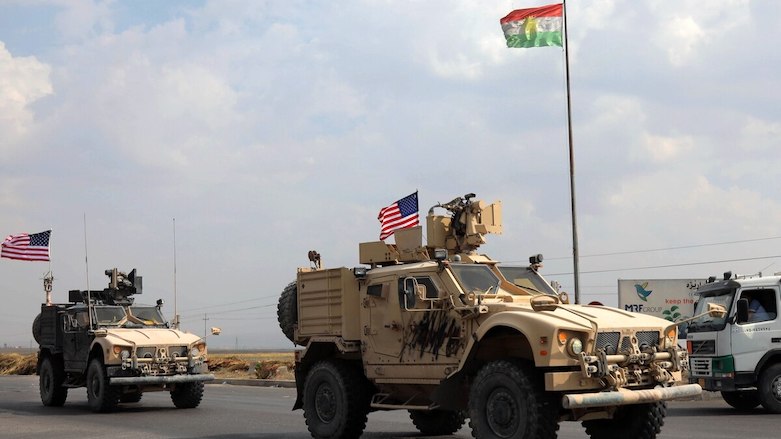US: We will remain in Syria, Iraq
US to remain in Syria, Iraq

WASHINGTON DC (Kurdistan 24) – Joel Rayburn, Special Envoy for Syria at the State Department, affirmed to journalists that the US-led Coalition would remain in Iraq and Syria until the job of defeating the so-called Islamic State is completed.
In a telephone press conference on Tuesday, Rayburn was asked by a Lebanese journalist whether the US had any plans to “finish” its mission in Syria.
Rayburn responded without hesitation: the US has no such plans. “The US military is continuing its mission as part of the Global Coalition and the campaign to defeat ISIS,” he stated.
“There’s still more work to be done,” Rayburn continued, “ISIS has been defeated as a territorial caliphate. They’ve been defeated as an army in the field, but they’re still there as a clandestine terrorist network, and they’re still trying to evolve into a guerilla-type insurgency, both in Syria and Iraq.”
“So there’s more work to be done,” he added, and “you will continue to see the United States and the Global Coalition do that work. I don’t see that mission ending until the job is done.”
Rayburn emphasized the three US goals in Syria: 1) the defeat of Da’esh, al-Qaida, and other Sunni terrorist groups; 2) securing “the withdrawal of all Iranian military forces and militias from Syria”; and 3) “achieving a political solution to the conflict” under the terms of UN Security Council Resolution (UNSCR) 2254, which “enables the Syrian people to determine their own political future.”
New Set of Syrian Sanctions
Rayburn spoke on the fifth anniversary of the passage of UNSCR 2254, as the Trump administration prepares to leave office in a month. His primary purpose was to present a new set of sanctions aimed at penalizing the Syrian regime, until it cooperates in the implementation of the resolution.
The new sanctions include the immediate family of Bashar al-Assad’s wife, Asma, who was born and raised in Britain. Before becoming the wife of a notorious dictator, she appeared, at least superficially, to have led an ordinary, if fairly successful, life for a young British woman.
Asma studied at King’s College, London, where she received an undergraduate degree in computer science and French literature. She was to study at Harvard University for an MBA, when, in 2000, she, instead, married Bashar.
Those sanctioned from her immediate family include: Fawaz Akhras, her father, a cardiologist at a major London hospital; Sahar Otri Akhras, her mother; along with her younger brothers, Firas and Eyad Akhras.
All are dual Syrian and UK citizens and currently live in the UK, Rayburn said, as he explained that the US had “coordinated this action” with the British government, which he described as a “very, very close” partner “on the Syria file.”
“The Assad and Akhras families have accumulated their ill-gotten riches at the expense of the Syrian people, through their control over an extensive, illicit network with links in Europe, the Gulf, and elsewhere,” Secretary of State Mike Pompeo said in a written statement, introducing the new measures.
Also sanctioned on Tuesday were Lina Kinayeh, “a key adviser to Bashar and Asma al-Assad in the presidential office,” Rayburn explained, “and her husband, Mohammed Masouti, a member of the Syrian parliament.”
According to Rayburn, the couple was “given control of assets” which have been “seized from other Syrian businesspeople.” Although those assets are held in their name, they are, in fact, “handling these interests on behalf” of the Syrian president and his wife.
Gen. Kifah Moulhem, the 49-year-old head of Syrian military intelligence, who has held that position since July 2019, was also sanctioned.
Pompeo described him as “one of the architects of the Syrian people’s suffering.” According to Britain’s Chatham House, Moulhem “was known for his cruelty and violence against demonstrators.”
Editing by Karzan Sulaivany